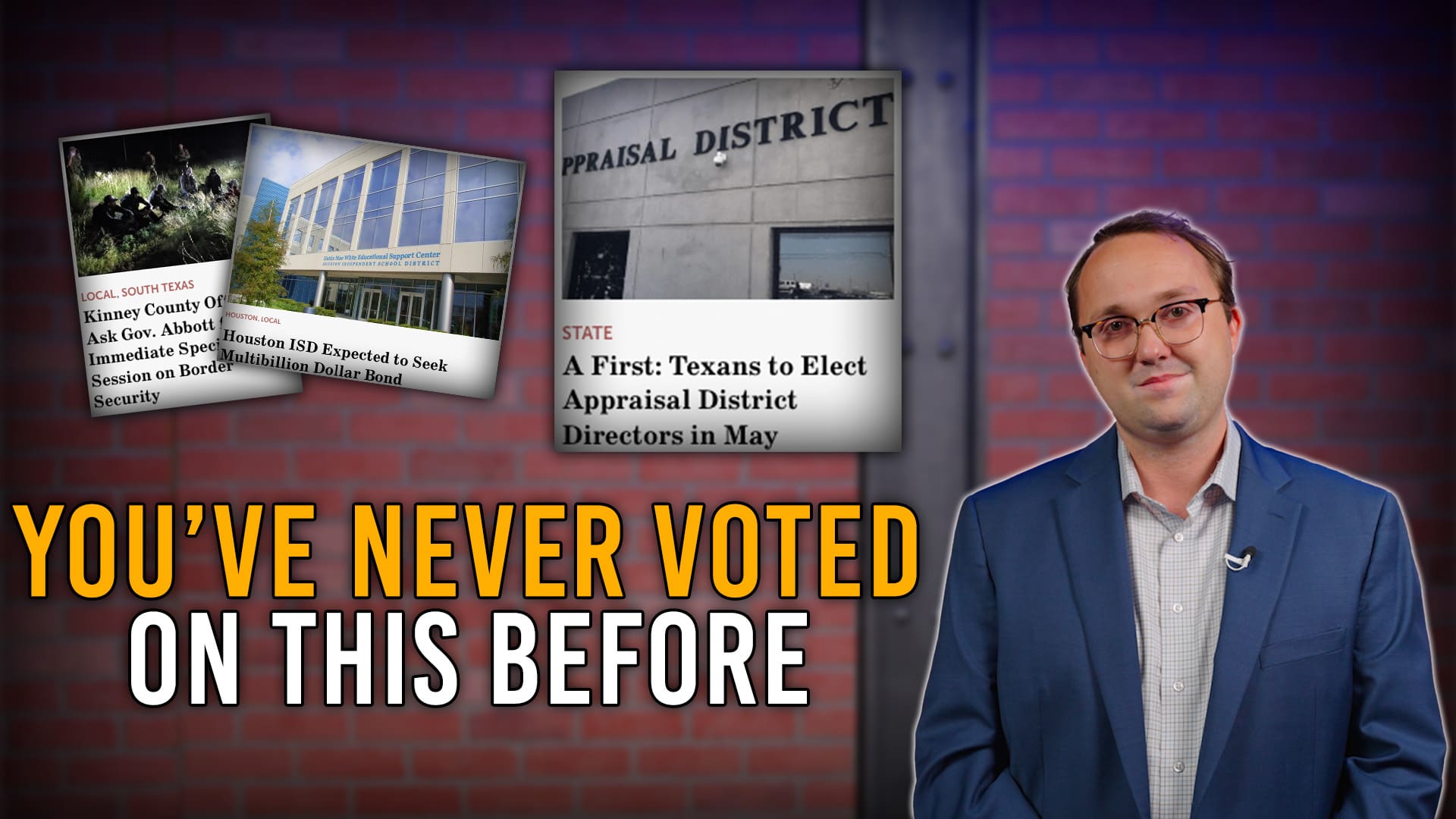Austinites face a crucial election in less than three weeks. While the top of the ticket will include highly publicized races such as Republican U.S. Sen. Ted Cruz and Democrat Congressman Beto O’Rourke, voters in Texas’ capital city will also make critical local decisions that will impact their affordability crisis—for better or worse.
From the nearly $1 billion in additional bond debt to the potential $160 million or more in taxpayer savings, here’s our take on the city’s ballot propositions.
Proposition A: $250 Million for Affordable Housing
TFR Stance: Against
Reasoning: Affordability is unquestionably a major problem in Austin, so why are we opposed to record funding for government housing? Simple: It makes the crisis worse.
The Austin City Council has rapidly escalated taxes on homeowners and businesses and, as a result, many Austinites don’t have enough money in their pockets to afford the city. Yet the city council’s solution thus far has been to take more of citizens’ hard-earned dollars away—the exact opposite of what will solve this problem.
If the city council truly wants to put out this fire, they could stop using gasoline and instead try water. We recommend lowering taxes on everyone, controlling the city council’s own wasteful spending, and reducing excessive fees and regulations. That’s the quickest and most direct way to affordable housing for the entire city, not just for a few hand-picked citizens lucky enough to be chosen for a government apartment that other Austinites had to pay for.
Propositions B-D: $461 Million for Libraries, Storm-Water Drainage, Parks, Etc.
TFR Stance: Against
Reasoning: We oppose this massive tax increase because, in addition to the affordability reasons listed on Proposition A, the Austin City Council has a terrible record of money management. For example, consider the $120 million library plagued with cost overruns and delays, the $140 million the city overspent on a flawed Waller Creek tunnel, or the “matched savings” program that simply gave away taxpayer dollars to citizens who applied, no questions asked.
Propositions E-G: $214 Million for Public Health, Public Safety, and Transportation
TFR Stance: Against
Reasoning: The city council could have already funded many of these items in their existing budget, but they chose not to.
For example, Proposition F contains $38 million for improvements to public safety facilities.
Public safety should be the first priority in a city’s budget, yet Austin somehow could not find room for fire stations and emergency medical facilities in their $4 billion budget.
The city council should not ask citizens for more of their money, but should better prioritize the massive amount of tax dollars already given to them.
Propositions H-I: City Charter Amendments
TFR Stance: Neutral
Reasoning: These are minor charter amendments, having to do with the selection process for the city’s Planning Commission, and typographical and grammar fixes in the charter itself.
Proposition J: City’s Land Development Code
TFR Stance: Neutral
Reasoning: This proposition deals with the city’s land development code, and whether or not a comprehensive revision of the city’s zoning should be put to a public vote.
Proposition K: Efficiency Audit
TFR Stance: For
Reasoning: The last proposition on Austinites’ ballot is one of the most important. If passed, it would implement a comprehensive, third-party review of the city’s operations and budget, and would recommend improvements to the city’s overall functionality.
Extensive audits such as these have produced substantial results in other cities and states, making them more effective and transparent. Based on other similar audits, the city could make significant progress in being a well-running machine, and Austin taxpayers could reap potential savings of at least $160 million. It’s a win-win.
Closing Thoughts:
While there’s a lot wrong with the way the Austin City Council operates, we do have to commend the city for breaking the bond question up into its component parts rather than making it an all-or-nothing decision. That is a practice we recommend every city in Texas adopt.
Early voting begins Monday, October 22 and runs through Friday, November 2. Election Day is November 6.





